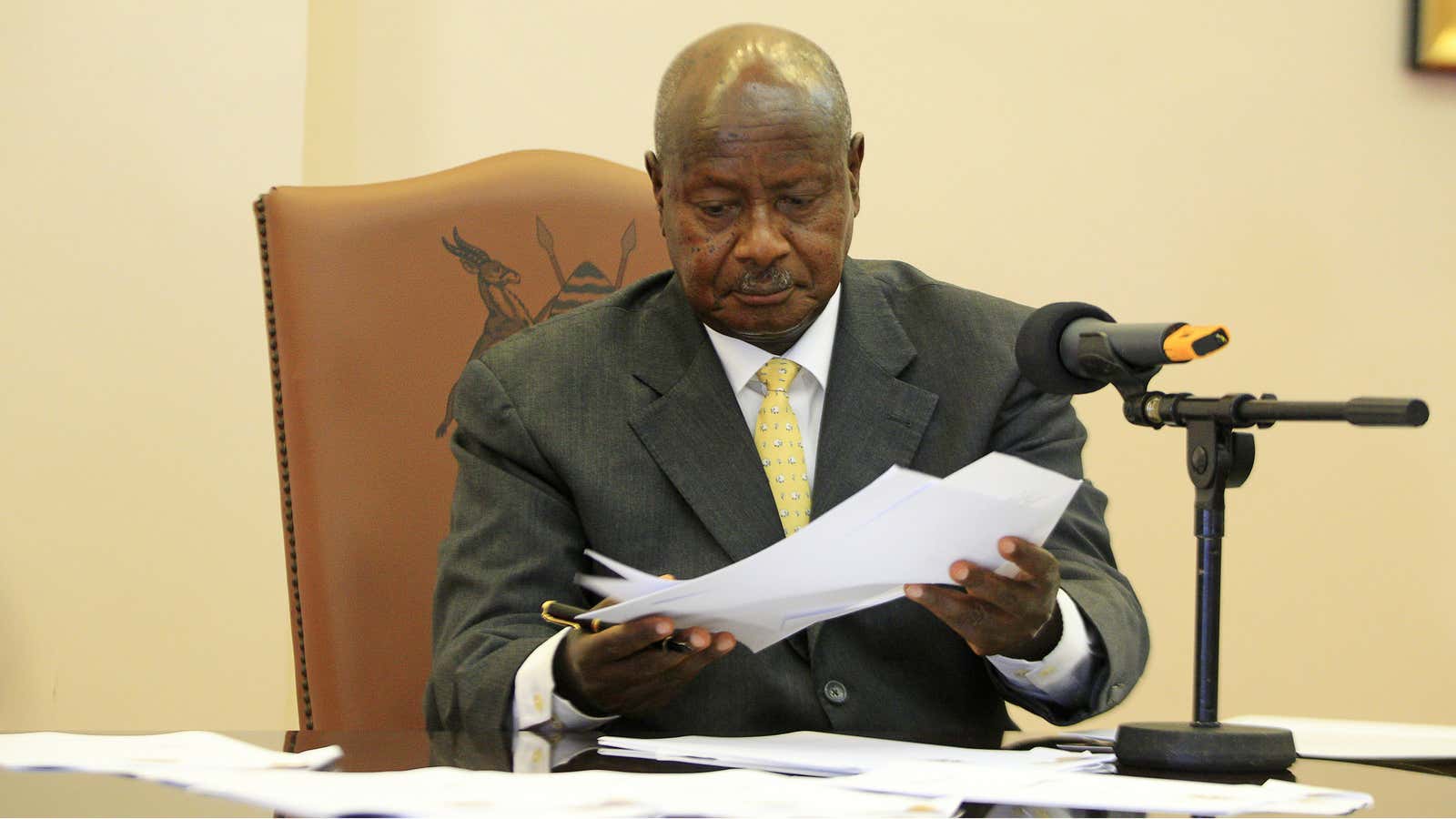Having nude photos on mobile and electronic devices in Uganda can land you in jail for up to 10 years under the country’s anti-pornography law, which parliament passed in 2014 with an aim to “stamp pornography out of the Ugandan society.”
As part of the clampdown, Simon Lokodo, Uganda’s minister of ethics, told state-owned media that the country has bought an $88,000 pornography-detection machine from a company in South Korea. It will arrive in Uganda next month, he said.
While scant on how the machine will actually work, Lokodo reportedly says it will be able to “detect, control, and scrutinize porn on mobile handsets and other electronic devices.” The ethics minister has previously asked telecoms operators in Uganda to track and block public access to pornographic material. To implement the anti-pornography law, a government-funded committee has been set up.
The crackdown on pornography fits with Uganda’s conservatism—the country made headlines worldwide when it passed an “anti-homosexuality act,” and though it was annulled in 2014, homophobia in the country remains widespread—and typically, there is strong support from the citizenry for moral policing. But the irony of spending tens of thousands of dollars on a pornography-detection machine in the face of competing needs that are arguably much more urgent was not lost on everyone. In particular, Uganda at one point earlier this year had no working radiotheraphy machines for cancer patients.
